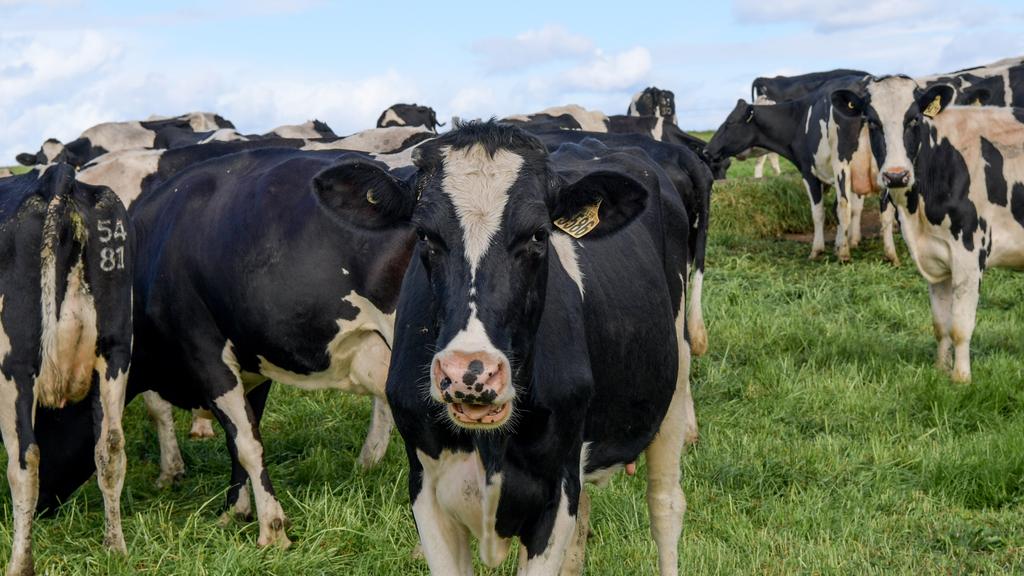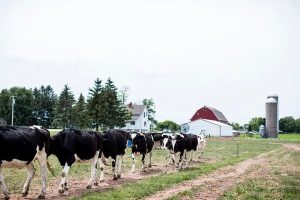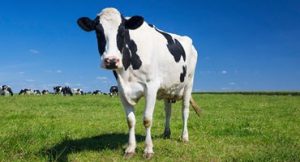
Von Ruden, Wisconsin Farmers Union president, said follow-up actions are under way about the recent meeting series held across the nation by the National Farmers Union and National Farmers Organization — actions he said could include development of some sort of national dairy supply management program.
“We’re trying to find a long-term solution so dairy farmers don’t have to go through this cycle thing where we’ve been gong through for the last four or five decades, of one high (price) year and three or four low years,” he said.
The dairy industry is in the fourth year of the most recent cycle of low prices, and Von Ruden said farmers are expressing their desperation.
“Things have to change, and they have to change soon,” he said.
In late winter, the organizations held nine meetings coast to coast to lay on the table two primary plans: An NFO two-tier pricing plan that would redistribute consumers’ money to pay dairy farmers up to $4 per hundredweight premiums as production is controlled, and a Farmers Union plan to implement a form of supply management that originally had been placed in the 2012–14 federal farm bill but then withdrawn.
Von Ruden said people attending the meeting series leaned toward the Farmers Union proposal, and that there was overwhelming support for some form of supply management.
“It seemed like there was very good support for the Farmers Union proposal,” he said.
Dairy Together organizers have said managing supplies is important as processing facilities reach their maximum levels, with Von Ruden saying the notion gets discussed whenever prices rise before processing capabilities are filled — supply management being an idea, he added, that the Farmers Union has been talking about for many years.
Representatives from congressional staffs were at most of the meetings, so the process of informing Congress about what proposal might be pushed toward Congress already has started. Von Ruden noted that a representative from the office of Rep. Collin Peterson, D-Minn. — chairman of the House Agriculture Committee — was among the audience at one of the sessions. The WFU president said more information would be passed to Congress as Dairy Together organizers finalize a proposal.
Among possibilities that Von Ruden cited was that dairy policies in the latest federal farm bill could be effective in stabilizing prices paid to dairy farmers. But he said it’s important to be ready with a new plan to push into the next farm bill if those latest policies are ineffective.
The proposal ultimately could develop into many forms, he said, including parts from several organizations’ supply management plans. He said a form of supply management has proven to work in Canada and Europe — the Europeans having one in place and then abandoning it, but then working to return to it.
Von Ruden said that, whatever the plan, it’s important that it have a broad range of dairy industry support, considering Congress has long told the industry that representatives want dairy producers to approach them with a plan developed in a single voice.
“As dairy farmers, we need to figure out how to get that single voice so we can actually have something that benefits dairy producers,” Von Ruden said. “It’s a matter of getting dairy organizations together. This isn’t a Farmers Union or an NFO issue — this is all of us. We have to get together and try to figure out how we can get to one end-game that will be beneficial to all producers.”
That voice needs to include consumers and environmental groups, he added.
Whatever plan Dairy Together organizers settle upon, Von Ruden said it won’t simply be set aside while dairy prices continue their fluctuating cycles. Instead, he said, the push will continue to give dairy farmers some control over the prices they receive.
“Ultimately, we want to see farmers have control of their own destiny,” Von Ruden said.
Schultz is assistant farm director at WAXX radio in Eau Claire and executive director of the Osseo-based nonprofit The Heartbeat Center for Writing, Literacy and the Arts.

























